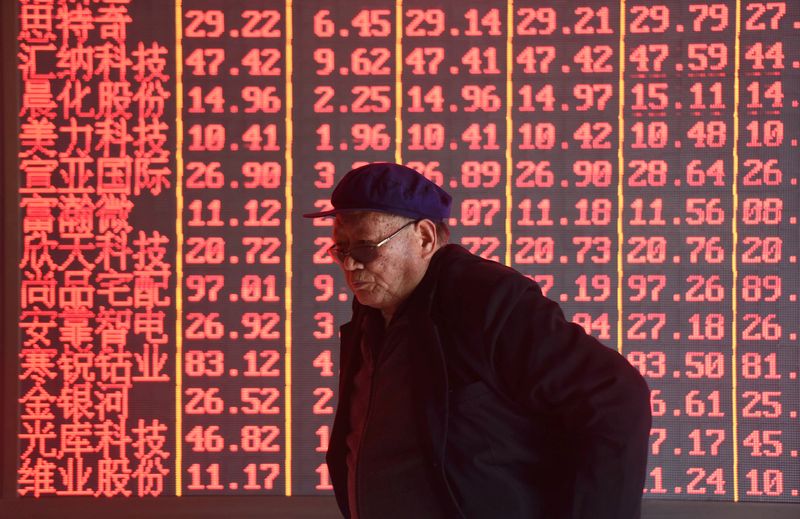Invesco positive on Asian credit in 2024 as Fed pause looms
2023.11.28 06:06

© Reuters. FILE PHOTO: A man stands in front of an electronic board displaying stock information at a brokerage firm in Hangzhou, Zhejiang province, China April 1, 2019. Picture taken April 1, 2019. REUTERS/Stringer/File Photo
By Anisha Sircar
(Reuters) – Global asset manager Invesco expects better returns from Asian credit markets in 2024 compared with the last two years as bets rise that the U.S. Federal Reserve will pause its interest rate hiking cycle.
Asian investment-grade corporate bonds “will return in mid-teen percentages,” on average, as the Fed holds off on further rate rises, Freddy Wong, head of Asia Pacific at Invesco Fixed Income, told the Reuters Global Markets Forum (GMF).
Wong expected Asian credit markets to broadly offer high single-digit to low double-digit returns in 2024.
Research from Bank of America showed investors have poured $145 billion into investment-grade corporate bonds globally, year-to-date, while pulling out $9 billion from high-yield bonds.
Asian investment-grade credit, with a return of +1.3%, has outperformed other regions this year, BofA data showed, compared to -0.9% in the U.S., -1.9% in EMEA, and -2.3% in Latin America.
Asian high-yield may not be an attractive enough bet just yet, Wong said, adding that he did not expect a recession in the U.S. next year.
Investors typically look for low-double digit returns in Asia to enter high-yield, Wong said, but that market may not be cheap enough yet “to put money to work”.
“They can already get 6% to 8% high-yield-like return through investment-grade credit,” Wong added.
Within Asia, Wong expects a “strong” performance by Indian and Indonesian local currency bonds, and said debt in Australia and South Korea will “behave well” as the two continue to be correlated to U.S. markets.
Wong said he was bullish on China fixed income for the next few years, adding, it is “the big trade we should not miss,” in the backdrop of being the most under-allocated country by global investors.
Fundamentally, China is changing the composition of its growth from being traditional infrastructure-led to high quality, Wong said, adding that allocations to China have to change focus going forward.
(Join GMF, a chat room hosted on LSEG Messenger, for live interviews:








